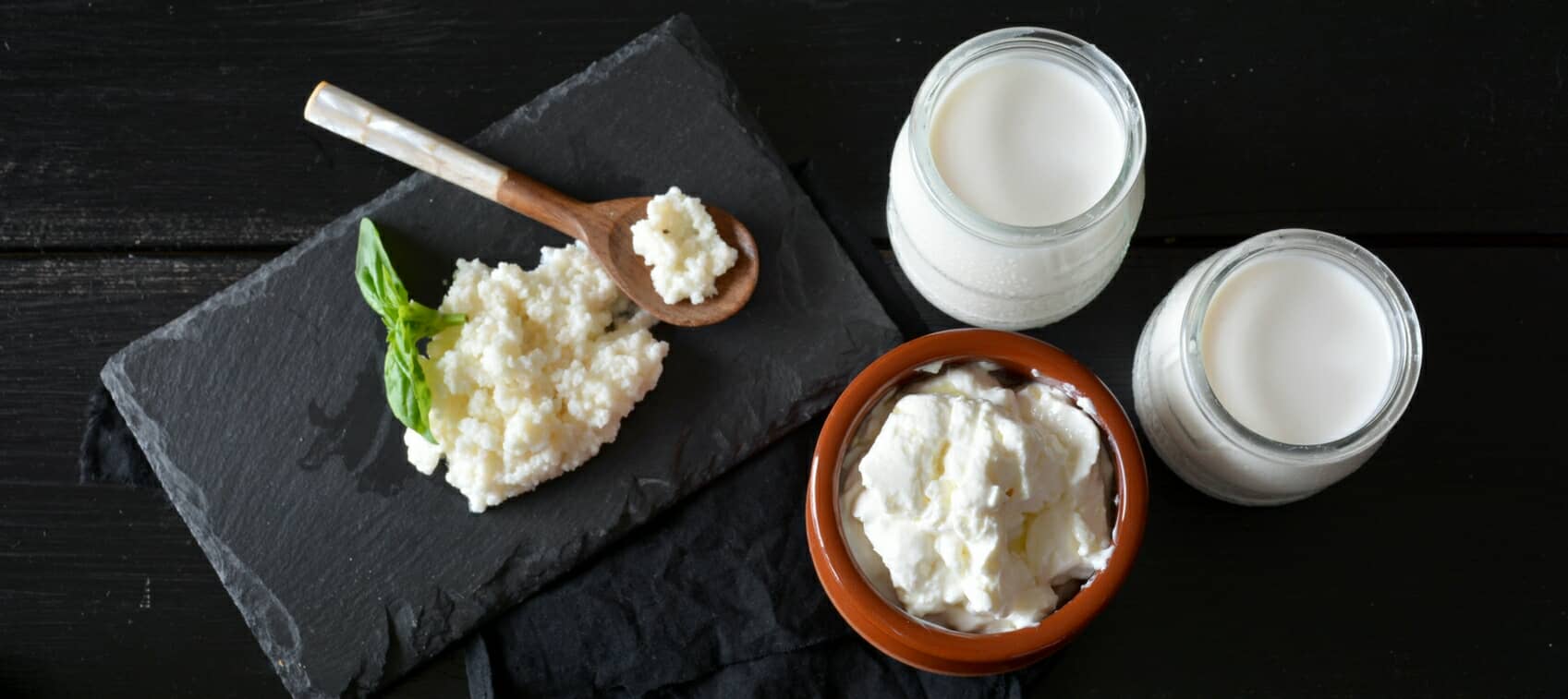Your entire digestive tract is lined with a single layer of mucus cells that not only makes up a significant part of your immune system, but also helps protect the walls of the digestive tract from damage. When this mucosal barrier is damaged, the underlying gut wall becomes exposed and susceptible to being breached.
Much like a cracked dam, a breach in the gut wall allows bacteria, yeast, fungi, viruses, parasites, toxins, and undigested food particles to enter the bloodstream. This phenomenon, and the numerous health problems it causes, is commonly referred to as leaky gut syndrome.
Causes of Leaky Gut Syndrome
There are multiple possible causes of leaky gut syndrome. These are a few of the most common ones:
- An imbalance in gut bacteria: Beneficial bacteria are needed to help produce protective mucus and ferment insoluble fiber which provides nutrients and energy for intestinal cells.
- A high-carb diet: Sugar and refined carbohydrates promote the growth of harmful bacteria in the intestinal tract and inhibit the growth of more beneficial forms.
- A protein-deficient diet: Mucus production requires the essential amino acid, threonine. Your body can't produce threonine; it must get it from your diet. Glutamine is another of the amino acids required to maintain strong intestinal walls.
- Toxins: Pesticides, herbicides, food preservatives, and other chemicals found in our food and water supply destroy the beneficial and protective bacteria in the gut. They also trigger inflammation within the gut wall, setting off a chain reaction within the immune system creating further destruction and additional intestinal permeability.
- Chronic stress (physical or mental): Stress releases inflammatory hormones like cortisol from the adrenal glands. The body can typically deal with these on a short-term basis, however long term the effects can be disastrous in the gastrointestinal tract.
- Various medications: Antibiotics work indiscriminately. They don't just destroy pathogenic bacteria; they wipe out the essential, beneficial bacteria throughout the body as well. A single round of antibiotics has been shown to disrupt the normal bacteria flora in the intestines for over a year.It's not just antibiotics that are troublesome. Pain relievers like aspirin and acetaminophen irritate the intestinal lining and damage protective mucus layers. Antacids and acid-blocking medications are also problematic. In fact, almost all over-the-counter and prescription medications have a negative impact on the body's normal bacterial flora.
Common Leaky Gut Syndrome Symptoms
The list of signs and symptoms associated with leaky gut syndrome are long and varied.
Digestive Symptoms
Obviously, digestive problems are some of the most common symptoms associated with leaky gut syndrome. The small microvilli, protrusions from the cell membranes lining the intestines, secrete enzymes to aid in digestion and the absorption of nutrients. Microvilli are damaged with leaky gut syndrome resulting in impaired digestion and nutritional deficiencies. A few of the digestive problems associated with leaky gut syndrome include:
- Chronic diarrhea
- Constipation
- Food allergies, intolerance or sensitivities
- Gas and/or bloating
- Indigestion
- Food cravings, particularly for sugar or carbs
- Vitamin or mineral deficiencies
- Crohn's disease
- Celiac disease
- Ulcerative colitis
- Diverticulitis
Immune Symptoms
About 80% of your immune system is in the digestive tract, and the destruction from leaky gut syndrome impairs a normal immune response. The continuous leaking of bacteria, toxic material, and pathogens into the bloodstream requires your immune system to work continuously without rest. It eventually becomes overwhelmed and this chronic inflammation is responsible for numerous immune problems unrelated to digestion including:
- Arthritis and joint pain
- Eczema, skin rashes, acne, rosacea
- Asthma
- Allergic reactions
- Autoimmune diseases
Mental and Other Non-Digestive Symptoms
Serotonin is a crucial neurotransmitter that helps regulate your mood, metabolism, and appetite. Most serotonin (95%) is produced by enterochromaffin cells in the GI tract. With leaky gut syndrome, the ability of these cells to produce serotonin is impaired which can lead to:
- Chronic fatigue
- Major depression
- Hormone imbalances
- Anorexia nervosa
- Anxiety
- ADHD
- Panic disorder
- Aggressive behavior
- Brain fog
- Migraines
- Impaired memory
- Disruption of the circadian clock
- Impaired blood flow
- Reduction in blood clotting ability (excessive bruising, bleeding)
- Heart disease
Leaky Gut Diet Tips
In a nutshell, to correct leaky gut syndrome one needs to first re-establish a health gut flora with beneficial forms of bacteria. Then, you need to provide the body with the right components to repair the damage to the gastrointestinal tract.
Here are tips and some of the foods and supplements that can help in dealing with leaky gut syndrome.
- Consuming live, fermented foods are one of the best and time-honored methods of establishing and maintaining a healthy microbiome in the gut. Some of these include yogurt, kefir, and sauerkraut. It's important that these foods contain "live" bacteria. Most don't since it limits their shelf life. It is best to make your own fermented foods.
- Take a quality probiotic supplement every single day. It is one of the best ways to ensure you're replenishing beneficial bacteria in the gut on a regular basis. Plus, on days you aren't able to consume fermented food, it helps to "fill in the gap." I consider probiotic supplements one of the most important supplements you can take for your health.
- Eliminate gluten, dairy, soy, refined sugar, caffeine, and alcohol from the diet. These are some of the most common foods your body treats as toxic, and you must refrain from bombarding the body with potential toxins. In severe cases, it might take as long as six weeks to see the benefits after changing your diet for leaky gut.
- Start taking aloe vera gel (not juice) to speed healing. Make sure it doesn't contain anthraquinone or aloin (the laxative components of aloe vera). The standard recommended oral dose is 30 ml three times daily. A company called Lakewood sells Organic Aloe Gel.
- Drink fresh, raw cabbage juice. It contains the enzyme methylmethionine, which used to be called vitamin U. It’s very effective in promoting healing of gut ulcerations and the gut in general.
- Eat quality proteins like eggs, meats, fish, bone broth, spirulina, and cottage cheese. These are needed to supply threonine, L-glutamine, and other amino acids that heal the gut. I particularly like whey protein powder, which contains all 9 essential amino acids. Another option is 2–5 grams of a L-glutamine supplement.
- Consume sources of healthy fats including fish, coconut and olive oils, avocados, flax, and chia. Intestinal cells get their energy from fatty acids. Butyrate, or butyric acid, is a specific short-chained fatty acid which is the primary energy source of intestinal cells.
- Take modified citrus pectin and berberine. Both of these supplements have many health benefits in addition to reducing the intestinal permeability of leaky gut syndrome.



